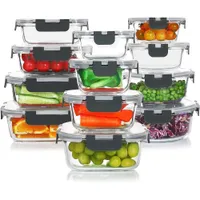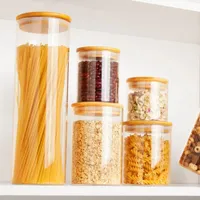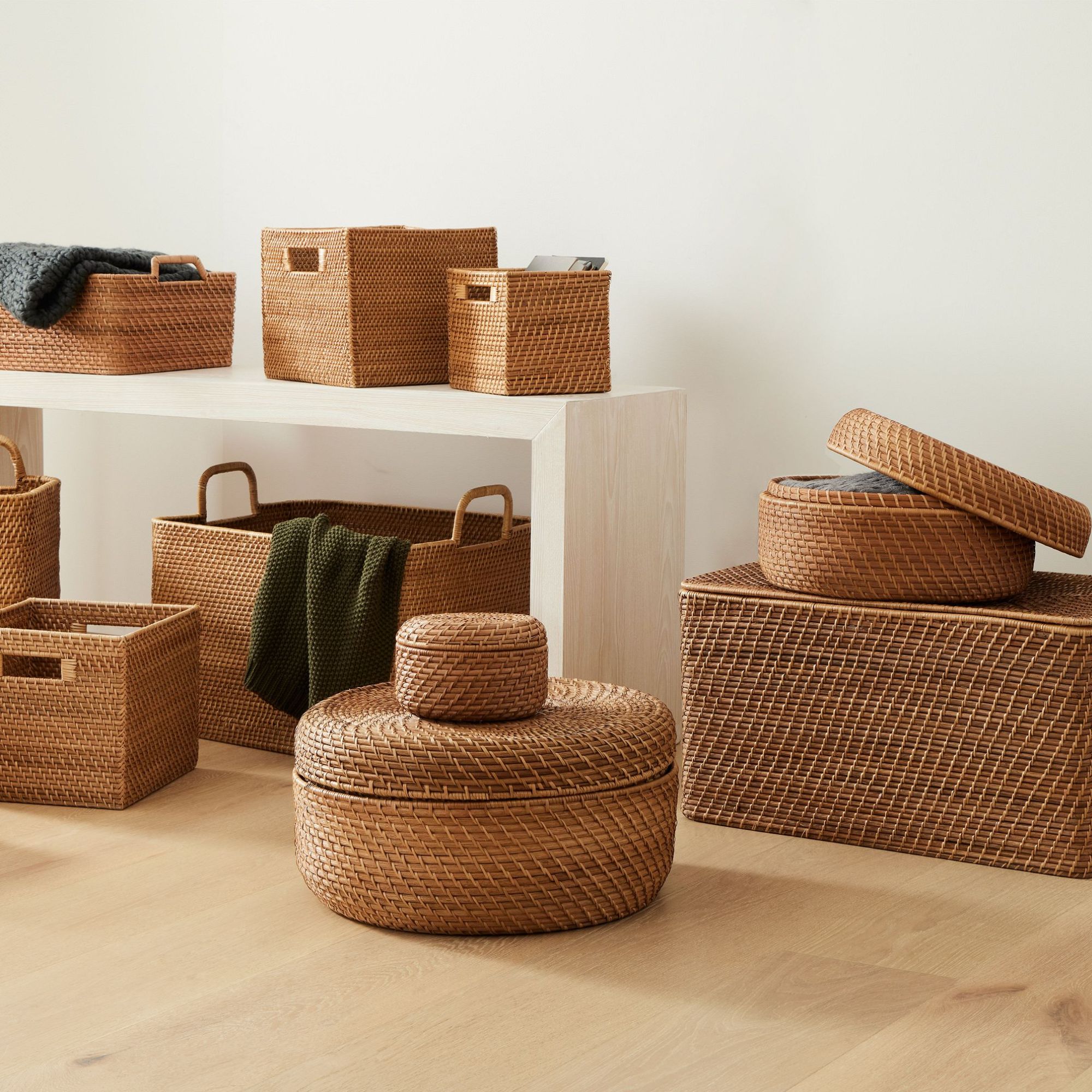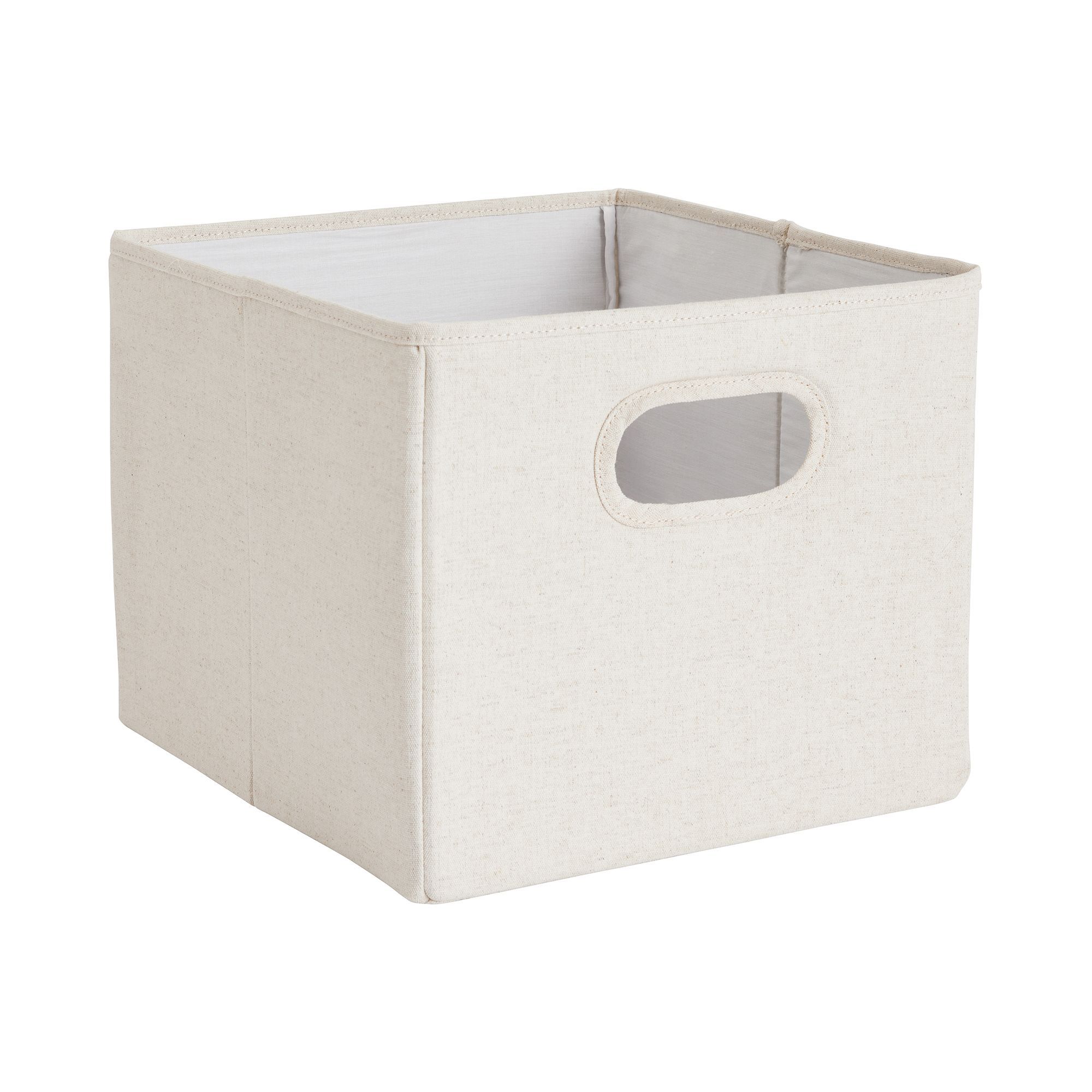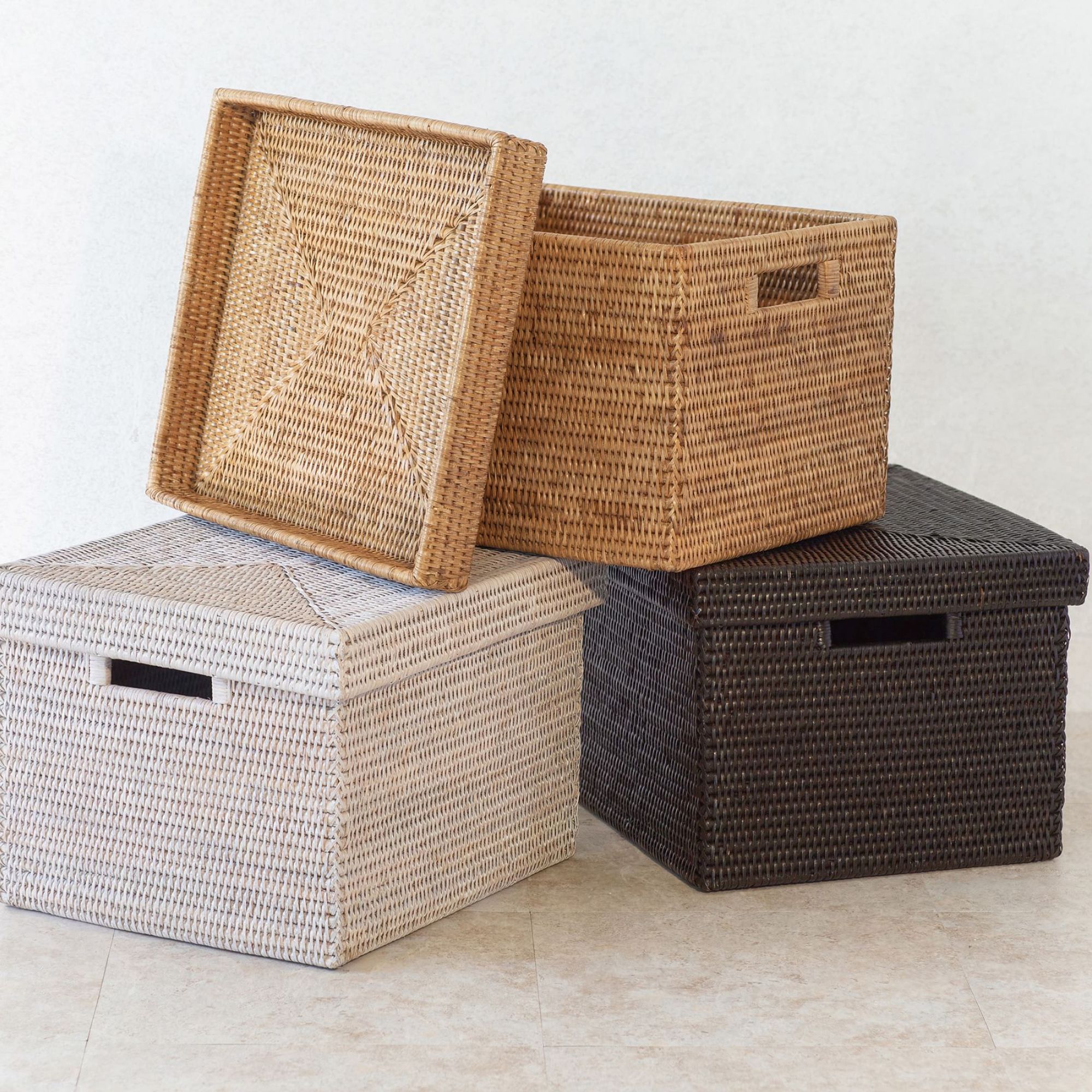These 7 things should never be stored in plastic bins – don't risk damaging your possessions
Dont risk damaging your possessions or creating a health risk – these are the items not to store in plastic containers and what to store them in instead

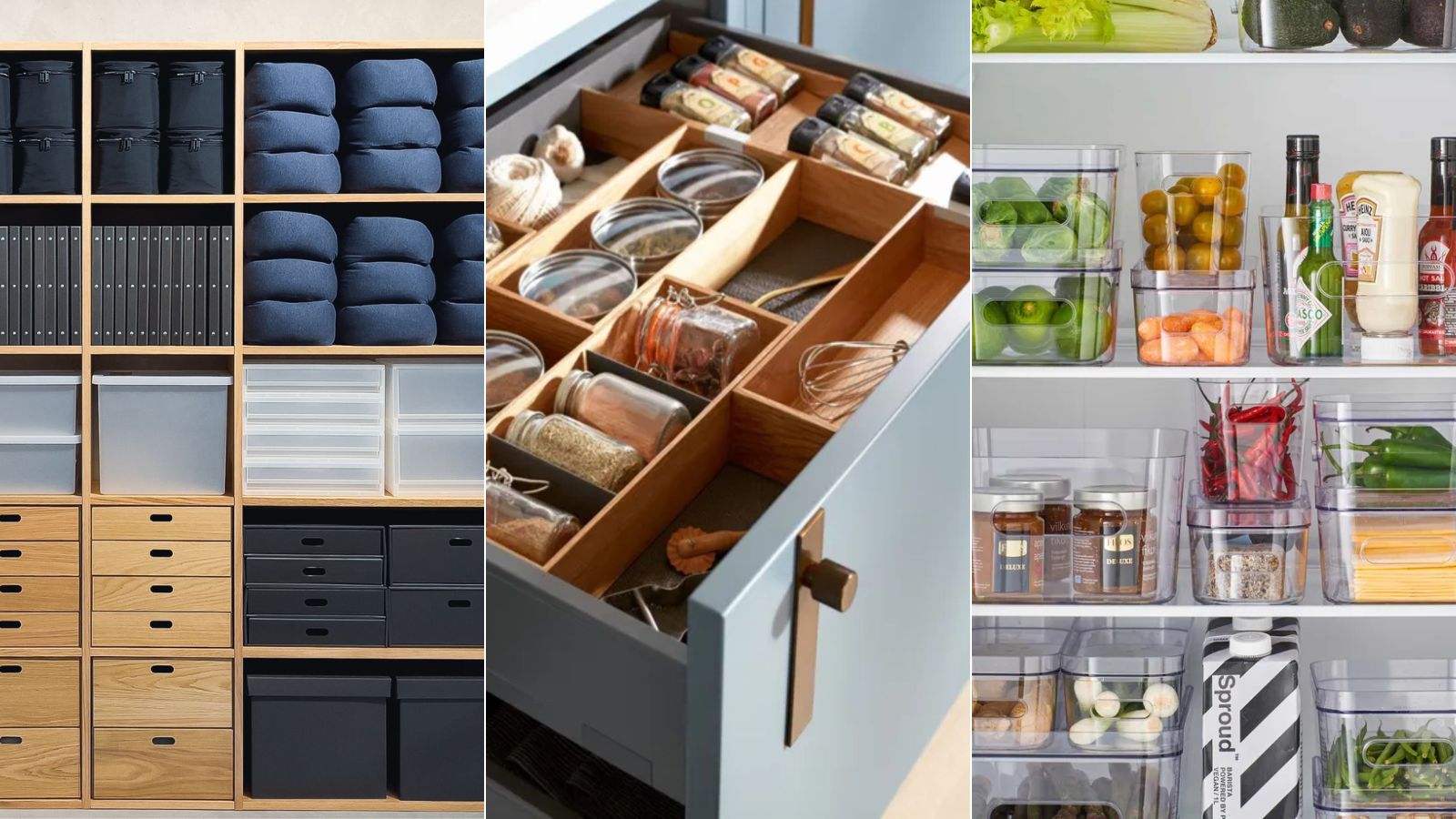
Plastic storage containers are undoubtedly convenient store-bought options, and in many cases are the best friend for anyone who is an organization, decluttering, or cleaning fanatic. However, it's important to keep in mind that certain items may get damaged in plastic bins.
Despite their durable, transparent, and seemingly airtight appeal, plastic storage containers come with a few downsides. Their lack of ventilation, potential chemical reactions, moisture build-up, and odor absorption can cause items stored in them to become damaged over time and even pose health risks.
Therefore, it is important to be mindful of which items never to store in plastic containers to ensure that we make informed decisions about how to best organize and preserve our possessions.
Things you should never store in plastic bins
Below are the seven things never to store in plastic containers and the best alternatives to balance convenience with safety and preservation.
1. Important documents and valuables
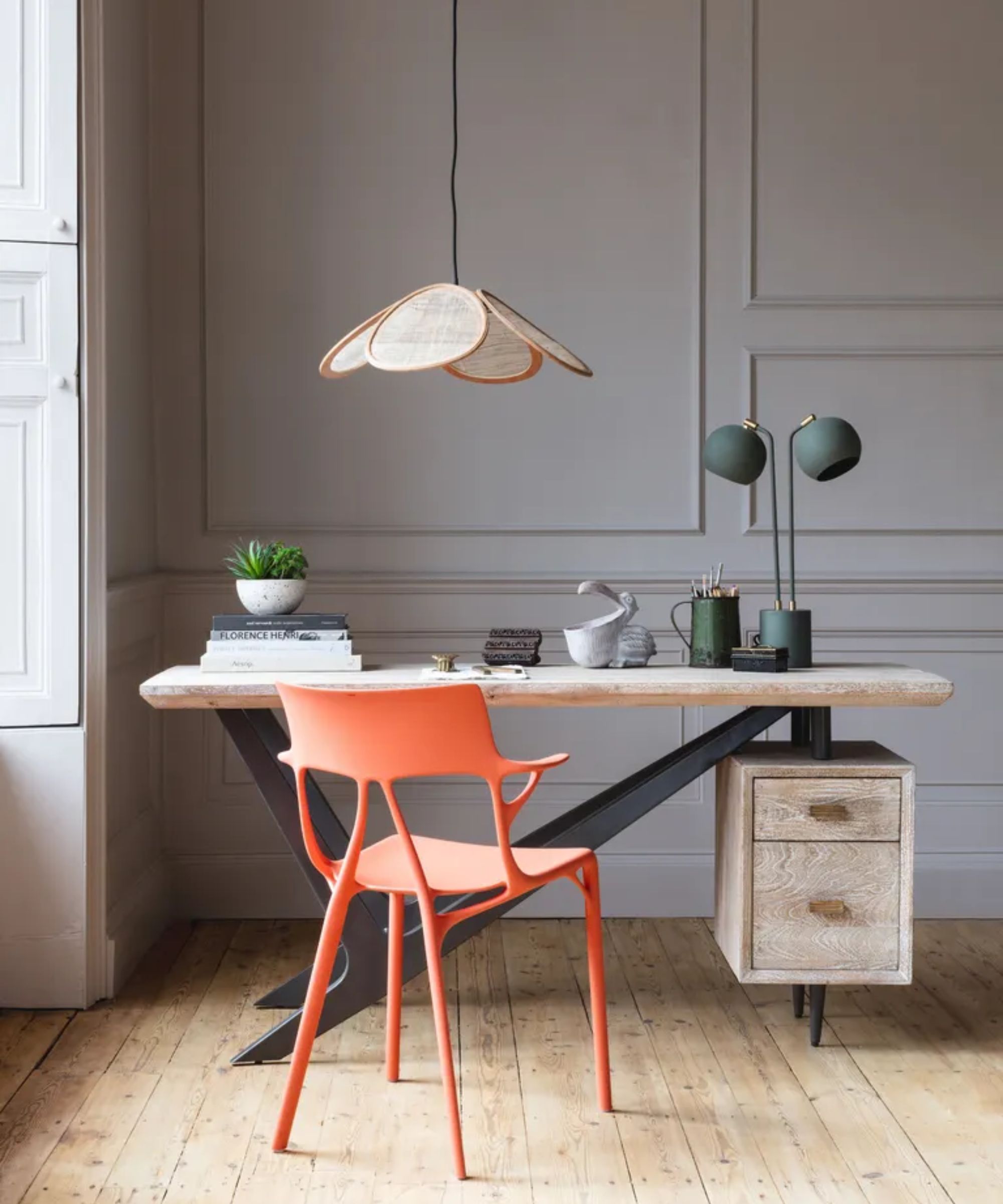
Important documents, valuables, and delicate items such as photos and artwork are all at risk of being damaged when stored in plastic containers. If any moisture gets into a plastic storage container before sealing it, it will be trapped. This can even lead to mold development if not allowed to dry out.
'Plastic bins may also not provide adequate protection against light exposure, temperature fluctuations, and humidity levels, which are critical factors in preserving important artwork, and valuables,' warns Joshua Haley, Founder of Moving Astute.
'Items like paintings, photographs, birth certificates, and delicate collectibles are best stored in archival-quality materials, such as acid-free boxes or portfolios, to prevent deterioration and preserve their value over time.'
Design expertise in your inbox – from inspiring decorating ideas and beautiful celebrity homes to practical gardening advice and shopping round-ups.

Joshua Haley is the Founder of Moving Astute. As someone deeply invested in the moving and relocation industry, Joshua has witnessed firsthand the importance of proper storage practices to protect belongings during transit and storage.
2. Food items
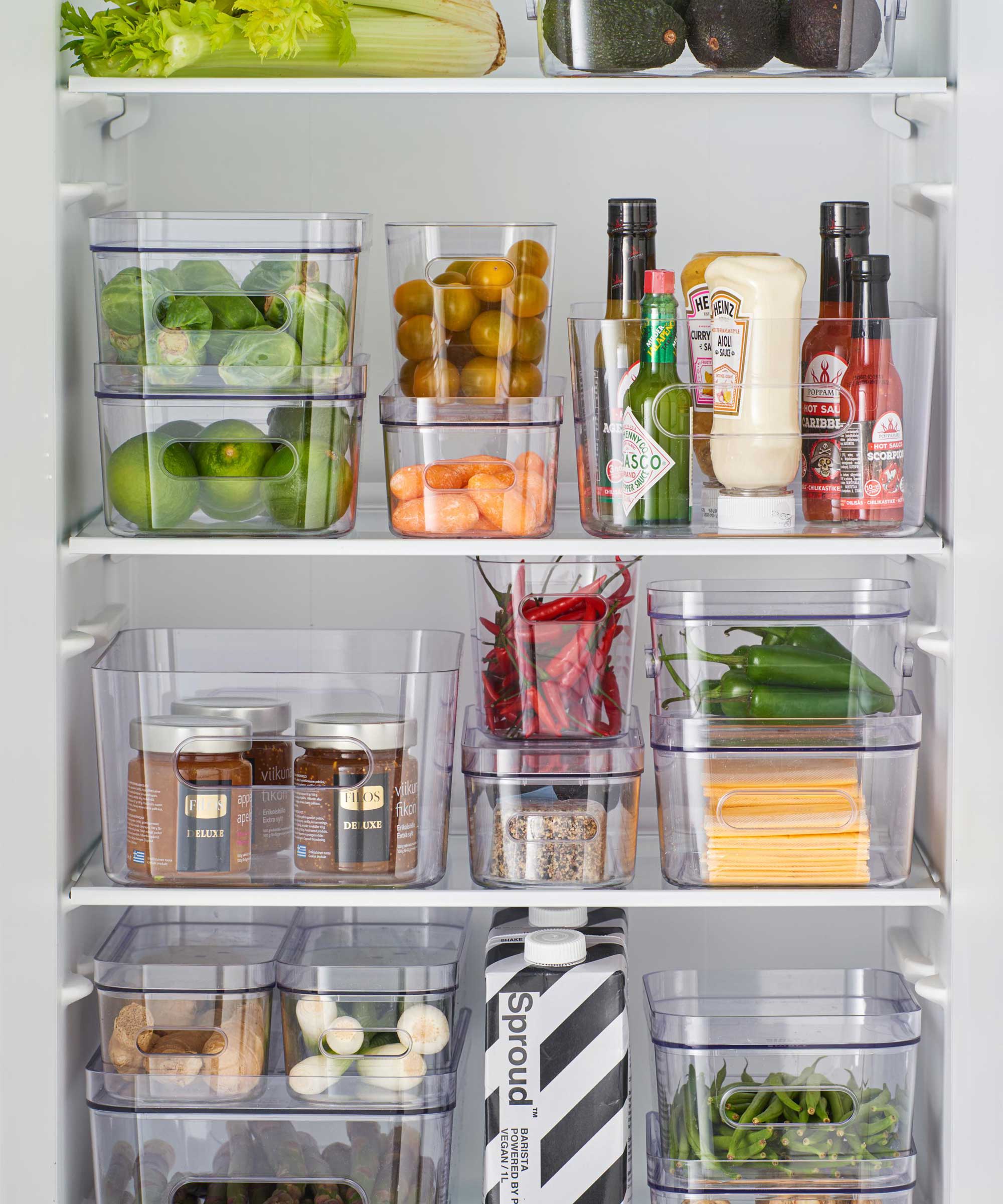
'While plastic bins may seem convenient for storing food, certain types of plastics can leach harmful chemicals into your food over time, especially when exposed to heat or acidic foods,' explains Joshua Haley. 'It's best to avoid storing food items in plastic bins, especially those made from PVC or polycarbonate plastics.
'Instead, opt for glass containers or food-grade stainless steel for safe and eco-friendly food storage.'
KOMUEE 24 Pieces Glass Food Storage Containers |$39.99, $29.98 at Amazon
These air-tight glass containers mean you can store hot or acidic food without risking contamination.
VTOPMART Glass Canister Set | $26.99 from Walmart
These glass airtight pantry containers are an aesthetically pleasing way of keeping your items visible and stored safely.
3. Chemicals and hazardous materials
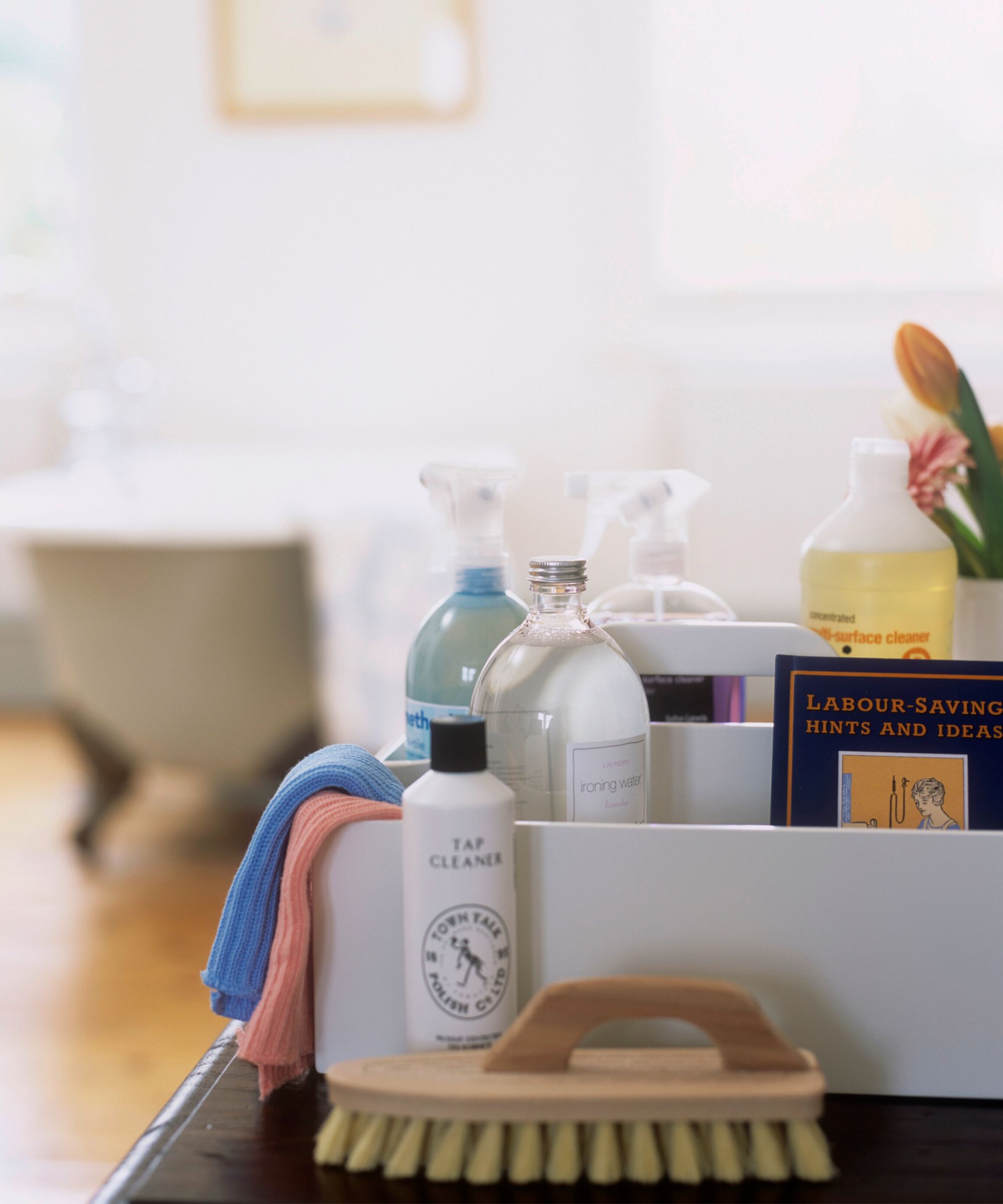
Items containing oils or chemicals, such as cleaning supplies or personal care products should never be stored in plastic containers due to possible chemical reactions with the plastic.
'Storing chemicals and hazardous materials in plastic bins can pose serious health and safety risks, as certain plastics may react with the contents or release harmful fumes,' explains Joshua Haley.
'It's essential to follow proper storage guidelines for chemicals and hazardous materials and use designated containers made from compatible materials such as glass or metal to store your cleaning supplies to ensure safe handling and storage.'
4. Electrical equipment
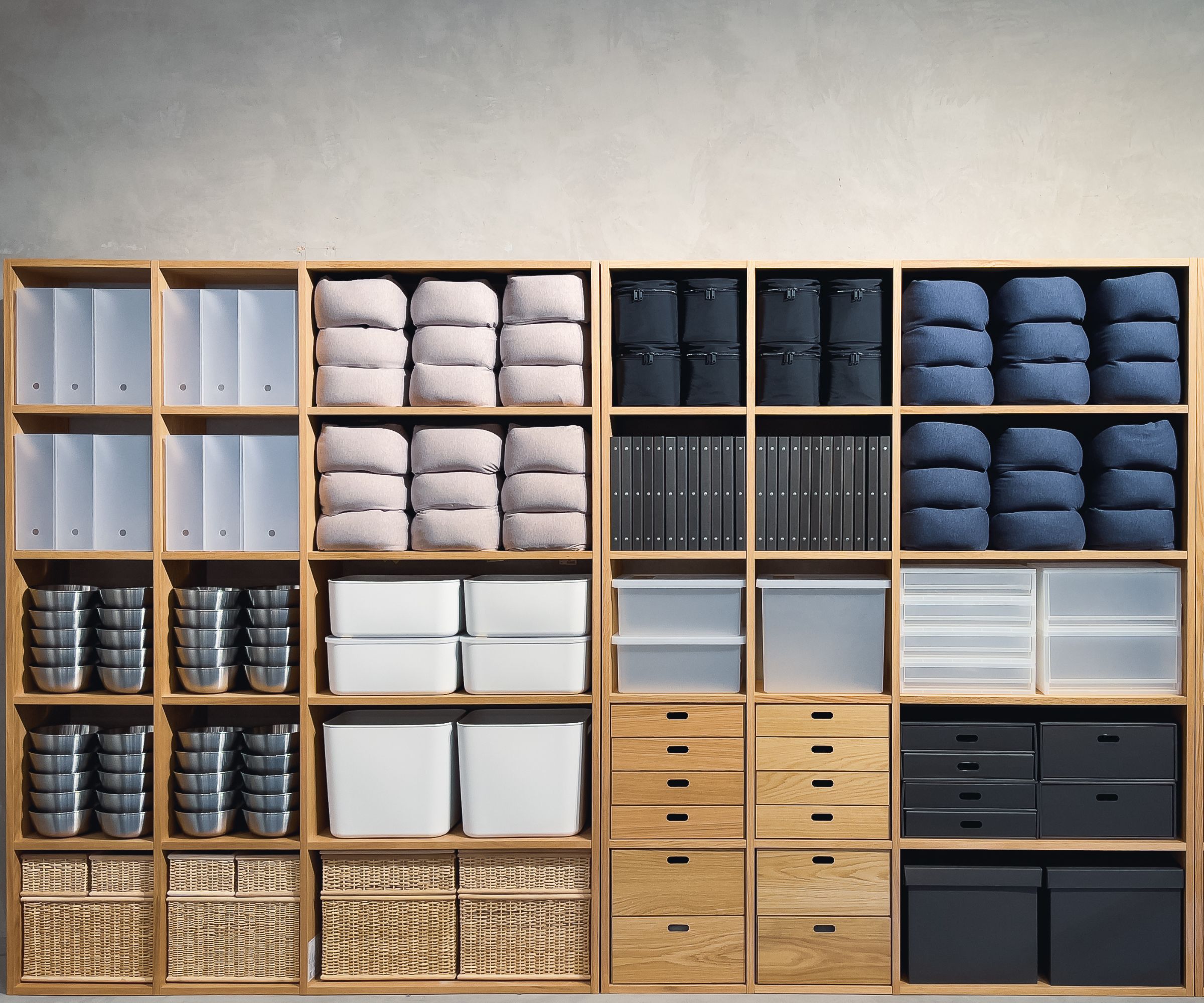
Due to their sensitivity to changes in temperature and moisture, electronic devices and batteries should not be stored in plastic containers. Plastic bins may not provide adequate protection against these elements, which increases the risk of corrosion or malfunction. Furthermore, extremely cold or hot temperatures can worsen battery life and cause damage to the device's components.
To keep your electronics safe, store them in storage solutions designed for electronics, such as anti-static bags or padded cases designed specifically for electronics to ensure their longevity. These should also be stored in a climate-controlled space.
5. Medications
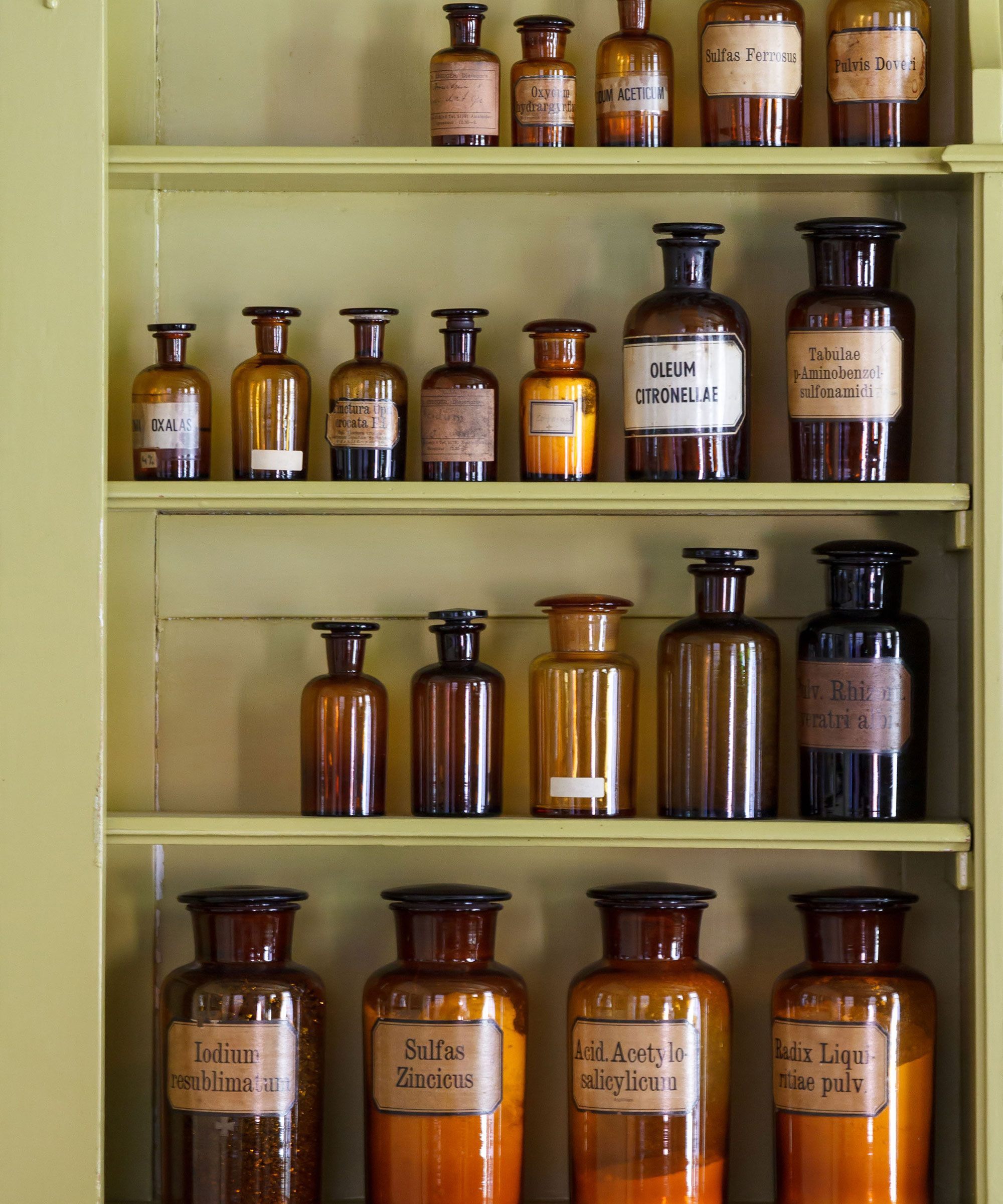
The efficacy and safety of vitamins and pharmaceuticals can be negatively impacted by inadequate resistance to light, moisture, and temperature changes in plastic containers. To maintain their effectiveness, it is essential to store these products in their original packaging or specially designed medicine storage containers.
By doing so, you can organize your medicine cabinet with storage that can prevent any health or safety issues, and ensure that the medicines are preserved for their intended use and longevity.
6. Clothing and fabrics
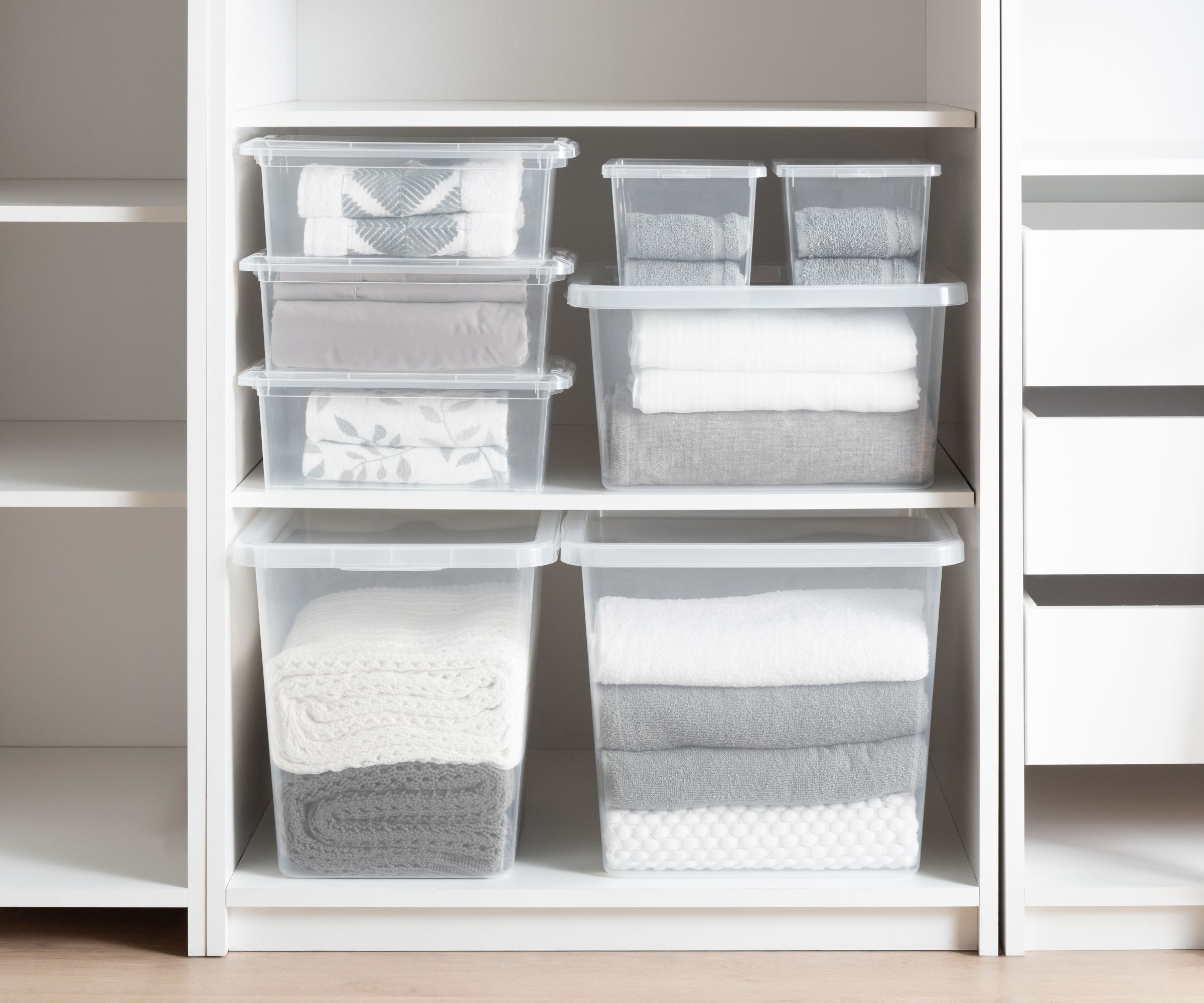
Although plastic bins may seem like a good storage option for clothing, towels, and other fabrics, because they trap moisture and lack proper ventilation, they can do more harm than good.
Due to a lack of proper ventilation, moisture gets trapped inside these bins. This can lead to mold or mildew growth, resulting in musty odors and damage to your belongings.
Fabrics such as silk, wool, cashmere, and leather are particularly sensitive and can be easily damaged by humidity.
Therefore, it is best to store towels and linens, and other fabrics in breathable containers such as cotton canvas bags or garment bags to protect your clothing and fabrics from moisture and mildew.
7. Premium spirits and wines
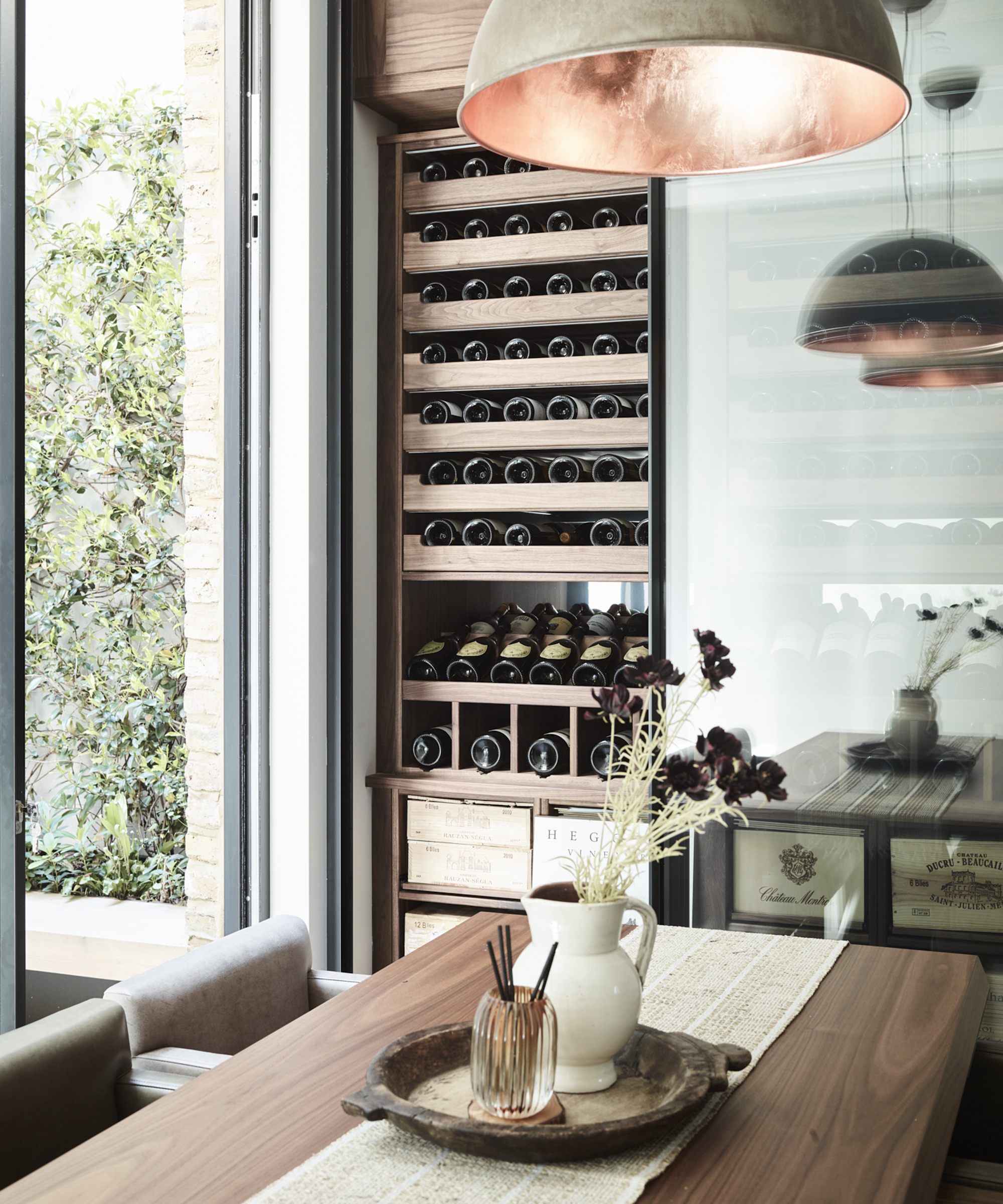
Storing bottles in plastic containers can indirectly affect their quality. This is because plastic can release chemicals into the air that may eventually seep into the cork and alter the flavor of your expensive wines and drinks.
To ensure that your prized drinks age well, store them in a wine room or a wine rack.
Finally, anything that has a strong odor like shoes, pet food, or scented items can cause plastic bins to retain the smell over time. So, best to use more breathable storage for items with odors.

Lola Houlton is a news writer for Homes & Gardens. She has been writing content for Future PLC for the past six years, in particular Homes & Gardens, Real Homes and GardeningEtc. She writes on a broad range of subjects, including practical household advice, recipe articles, and product reviews, working closely with experts in their fields to cover everything from heating to home organization through to house plants. Lola is a graduate, who completed her degree in Psychology at the University of Sussex. She has also spent some time working at the BBC.
